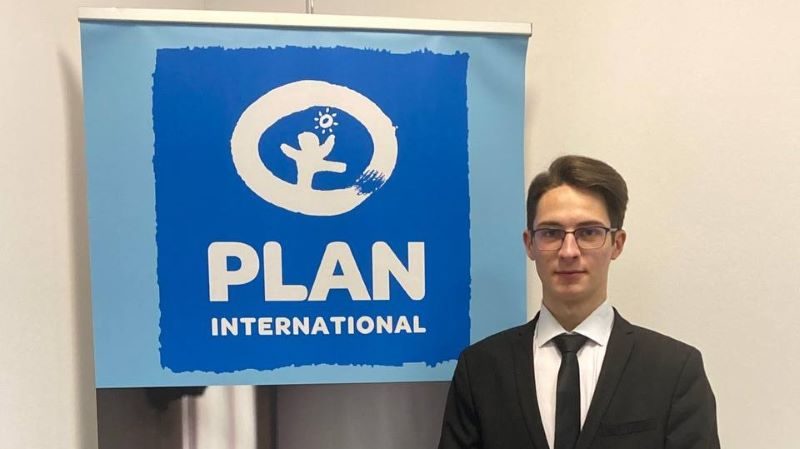Ukrainian young men’s struggle for mental health support
Youth worker Maksym is aware of the psychological effects of the conflict in Ukraine. Now living in Poland, he is calling for greater mental health support for young men.

Maksym engaged with Plan International for the research project Invisible Wounds.
“Probably the best form of support for Ukrainians, as for any person, is being around your people,” says Maksym, 19, from Ukraine. “It would be a good idea to have some psychological initiatives for those who have recently moved and are going through the process of adaptation in a foreign country, so that a person could smoothly and without fear go through this transition.”
After finishing school in 2023, Maksym moved to Poland, where he chose to enter university to study political science. Of this experience, he says, “It was very difficult for me at the beginning of my move to Poland to keep my head above water here and somehow build my life in a foreign country without anyone by my side.”
War has huge impacts
Maksym has worked in youth and education-focused programmes from a very young age, including at the Freedom Foundation, where he worked on a report on the barriers Ukrainian children face in Poland. “There is always a need for support,” he says. “Even if people do not recognise it. War is just one of those things that will always impact all people greatly.”
“Any war, by its very nature forms the image of a man as a strong, invincible soldier… you have no right to emotions, to anything that can be considered weakness.”
Psychosocial support remains an area where greater attention is needed. “You can’t finish a marathon if you feel out of breath until you inhale. For me, inhaling means seeking psychological support,” Maksym explains. “And then you continue the marathon—because the goal for all of us is to win. It takes strength, time and unity. And in this strength and unity lie health and the well-being of our people.”
However, seeking mental health and psychosocial support can be difficult due to stigma and barriers to access—especially for young men like Maksym. “Any war, by its very nature forms the image of a man as a strong, invincible soldier… you have no right to emotions, to anything that can be considered weakness,” he explains. “Each of us is a human being. And our psyche will eventually catch up with us.”
Seeking help must be normalised
When asked about his advice for organisations to tailor their support to better meet the needs of young men and adolescent boys, Maksym recommends focusing on normalisation. “We should invest in normalising the whole experience of seeking help, and then people who need it will realise that they need it and will take advantage of it.”
Maksym engaged with Plan International for the research project Invisible Wounds: Navigating Mental Health Challenges and Support for Adolescent Boys and Young Men as one of 38 youth experts. As part of the consultation group, he provided feedback on methodology and the research findings summary. His insight, both as a Ukrainian who has sought psychosocial support and as a youth worker, informed our research approach.
Categories: Emergencies


